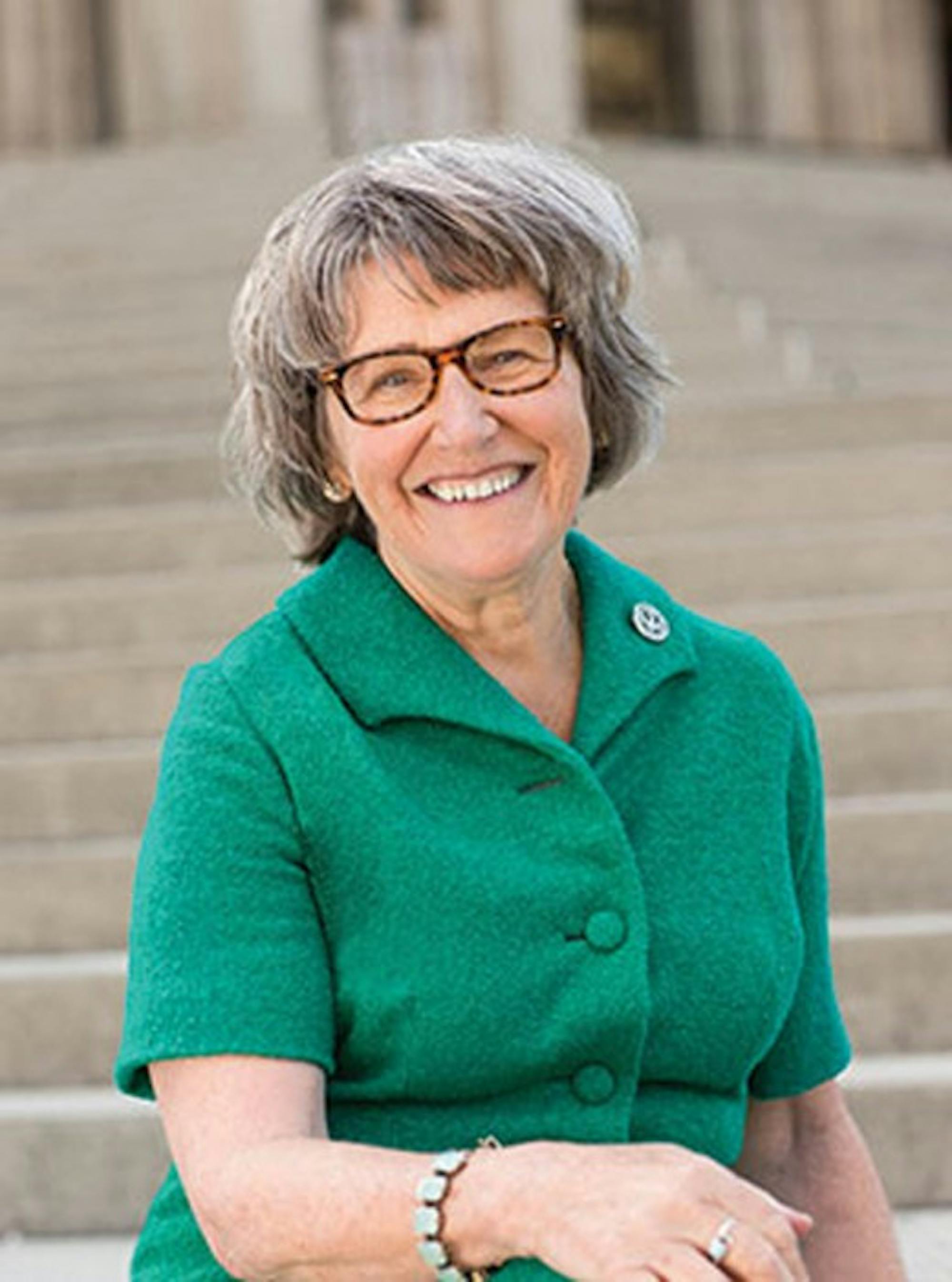Sister Simone Campbell spoke on the “The Contemplative Call to Do Justice” at Saint Mary’s on Tuesday evening as part of the “Life and Leadership of Catholic Women Religious” lecture series.
During the presentation, Campbell shared stories about her numerous political experiences and personal interactions, describing the success of her endeavors as under the guidance of the Holy Spirit.
“Over the past couple of years, the amazing things that have happened for me have been all about the Holy Spirit being alive and well, and as I add, making mischief,” Campbell said.
These include writing the nun’s letter supporting the passage of the Affordable Care Act and organizing the famous 2012 and 2013 “Nuns on a Bus” tours, which addressed cuts in federal funding for people in need and immigration reform. She is also a member of NETWORK, a social justice lobby founded by 47 sisters to influence legislation in Washington, Campbell said.
“[The Vatican] named our little organization [NETWORK] as being a bad influence on Catholics,” Campbell said, “We only had nine full time staff at the time, and we made the Vatican nervous? It was a bit shocking … but it was because of that we had Nuns on a Bus.”
By using moments like the spotlight brought on by the Vatican as moments of mission, Campbell said she has been able to act on her belief that active, contemplative life has two aspects: radical acceptance and fighting. Radical acceptance is the key to building bridges and end divisions that are tearing America apart, Campbell said.
“How do we welcome in the folks we would rather not even deal with?” Campbell asked. “If we’re at odds with the God in them, we’re at odds with the God in us.”
Once people can radically accept each other and their differences, everyone can stop fighting against each other and instead fight for a different, better vision, Campbell said.
She said listening to one another allows us to move forward in healing society.
“When we have radical acceptance, we can have a conversation long enough to find commonality to be able to talk to each other, to share some real concerns,” Campbell said.
By referencing the story of Moses and the burning bush from Exodus, Campbell said we are called to listen to the cries of the oppressed in our country.
“If we let their cries penetrate our ears, we are called to be a burning bush for them,” Campbell said. “When you put radical acceptance and fighting for something together, it creates fire, it creates the unexpected, it creates light, heat [and] hope.
“But it all depends on being touched, fire can only be generated when you touch a person’s life, a person’s story, and make that person’s story part of you.”
Sharing stories of people who have touched her life, including a woman who died because of pride and the inability to access health care, as well as an 11-year-old girl who is independently raising her twin because her parents have been deported, Campbell said as the richest nation on earth, it is immoral to allow these sorts of stories play out.
“Too often we get paralyzed, isolated … we don’t do anything,” Campbell said. “We, the people of God, I believe, are called to act … We’re each called to do one thing, and if we each do one thing, everything will get done. This is the whole point of community.”
Campbell said everyone is called to act in a different way, and she hopes to encourage young people to get involved in politics because they are not old enough to be timid, and they have the chance to test new ideas.
“At the heart of this is the powerful truth that we are one body … and our body is in pain, is ill, is divided. We, this one body, need to be healed, and how can we do it? By radical acceptance, by fighting for the better way, by speaking up … whatever part of the body you are, do your part,” Campbell said.
Junior Karlie Wolff said she was impressed with way that the lecture went against the traditional perspective that Catholic women can’t be influential.
“I thought it was really good, especially since I’m not Catholic myself,” Wolff said. “I always like seeing the talks that bring the Catholic perspective and Catholic ideas to something all of us can see and connect with, especially social justice issues.”
The lecture concluded the “Life and Leadership of Catholic Women Religious” series sponsored by the College’s Center for Spirituality.













